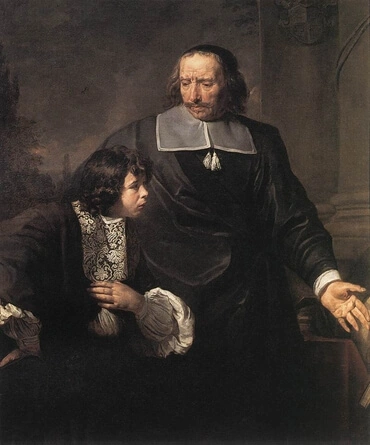1
POI alzai di nuovo gli occhi, e riguardai; ed ecco quattro carri, che uscivano d’infra due monti; e quei monti erano monti di rame.
2
Nel primo carro vi erano cavalli sauri, e nel secondo carro cavalli morelli;
3
e nel terzo carro cavalli bianchi, e nel quarto carro cavalli sauri, faldellati di bianco.
4
Ed io presi a dire all’Angelo che parlava meco: Che voglion dire queste cose, signor mio?
5
E l’Angelo rispose, e mi disse: Questi sono i quattro spiriti del cielo, che escono dalla presenza del Signore di tutta la terra, dove stanno.
6
Il carro, nel qual sono i cavalli morelli, esce verso il paese del Settentrione; ed i bianchi escono dietro a loro; ma i faldellati di bianco escono verso il paese del Mezzodì.
7
Poi uscirono i sauri, e richiesero di andare a scorrere per la terra. Ed egli disse loro: Andate, scorrete per la terra. Essi adunque scorsero per la terra.
8
Poi egli mi chiamò, e mi parlò, dicendo: Vedi, quelli che escono verso il paese del Settentrione hanno acquetata l’ira mia nel paese del Settentrione.
9
POI la parola del Signore mi fu indirizzata, dicendo:
10
Prendi, d’infra quelli che sono stati in cattività; da Heldai, da Tobia, e da Iedaia; vieni anche in quello stesso giorno, ed entra in casa di Giosia, figliuolo di Sefania, i quali son venuti di Babilonia;
11
prendi, dico, da loro dell’argento, e dell’oro, e fanne delle corone; e mettile sopra il capo di Iosua, figliuolo di Iosadac, sommo sacerdote.
12
E parla a lui, dicendo: Così ha detto il Signor degli eserciti: Ecco un uomo, il cui nome è: Il Germoglio; ed egli germoglierà sotto di sè, ed edificherà il tempio del Signore.
13
Ed egli sarà quel ch’edificherà il tempio del Signore, e porterà la gloria; e sederà, e signoreggerà sopra il suo trono, e insieme sarà Sacerdote sopra il suo seggio; e consiglio di pace sarà fra questi due.
14
E quant’è alle corone, sieno per Helem, e per Tobia, e per Iedaia, e per Hen, figliuolo di Sefania; per ricordanza nel tempio del Signore.
15
E que’ che son lontani verranno, ed edificheranno nel tempio del Signore; e voi conoscerete che il Signor degli eserciti mi ha mandato a voi; e questo avverrà, se pure ascoltate la voce del Signore Iddio vostro.







